WHAT A YEAR
For over 50 years, Texas Computer Science has been supplying the people and ideas that shape scientific discovery and technological innovation.
In 2019, we enjoyed one of the strongest faculty recruiting cycles in the history of Texas Computer Science, welcoming eight new faculty members across multiple research areas into our world-class academic community. We are hard at work developing educational programs that redefine higher education. Our new online master’s program will make graduate education affordable and accessible for thousands of students. We’re also proud to announce the launch of our new computer science and business honors program, which delivers a rigorous dual degree program to our best and brightest.
And we’re just getting started.
Joydeep Biswas
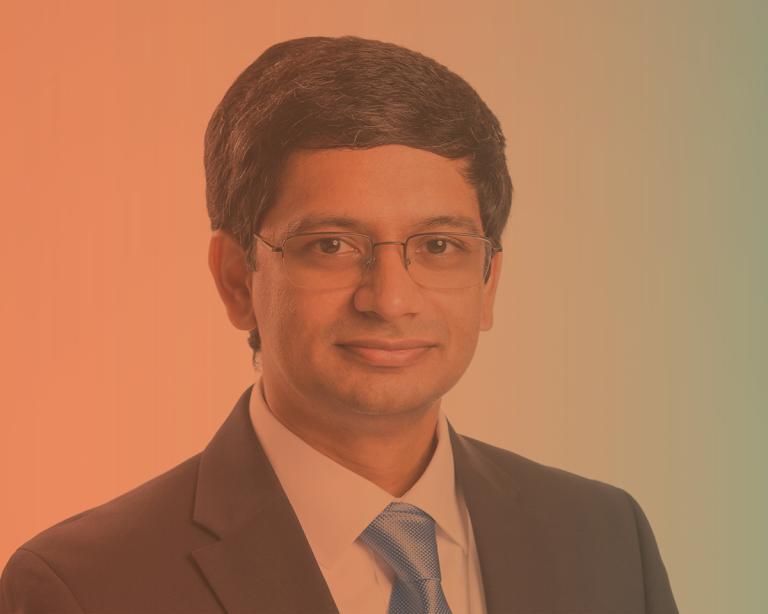
Research Interests: Robotics, long-term autonomy, machine perception, planning, and human-robot shared autonomy
ARTIFICIAL INTELLIGENCE
ASSISTANT PROFESSOR
In his move to UT, Dr. Joydeep Biswas brings with him an impressive track record from the University of Massachusetts Amherst and Carnegie Mellon University.
Dr. Biswas earned a bachelor of technology in engineering physics at the Indian Institute of Technology, Bombay. He went on to earn his master’s and doctorate of philosophy in robotics at Carnegie Mellon University.
His doctoral thesis at Carnegie Mellon facilitated the long-term deployment of CoBots in the university’s School of Computer Science building, which individuals can reserve to complete tasks, like mail delivery.
He received the 2019 J.P. Morgan Faculty Research Award, an Amazon Research Award, and was selected as a Carnegie Mellon Siebel Scholar. He has also interned and worked as a fellow at Google and Intel.
Through his work, Dr. Biswas wants to have autonomous mobile robots completing tasks in human environments. Thus, his research interests lie in perception, control, and control applied to autonomous mobile robots.
James Bornholt
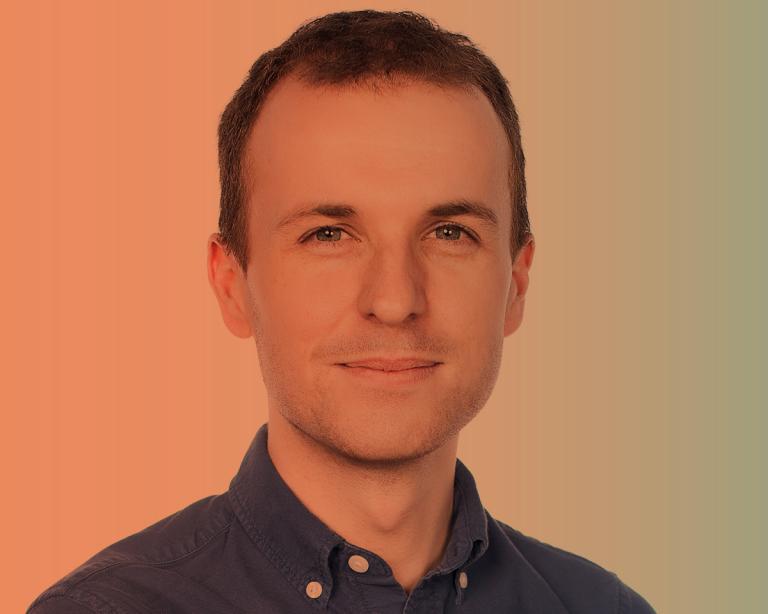
Research Interests: Program synthesis and automated program verification
PROGRAMMING LANGUAGES, SYSTEMS, & FORMAL METHODS
ASSISTANT PROFESSOR
Dr. James Bornholt brings a plethora of experience in programming languages, formal methods, and systems. His research focuses on assisting programmers in creating more reliable software via automated reasoning tools, and applying these findings to solve challenges in systems and architecture.
Dr. Bornholt received his bachelor of philosophy in computer science at the Australian National University in 2013. He went on to continue his studies at the University of Washington, receiving a master’s, and most recently, a doctorate in computer science and engineering in 2019. His thesis was on program synthesis, which makes programmers radically more productive by automatically writing programs given a description of their behavior. He developed new ways for programmers to understand the behavior of these tools and to build their own, and these techniques have been the foundation of a number of academic and industrial projects.
Prior to joining Texas Computer Science, Dr. Bornholt worked as an applied scientist at Amazon, and was financially funded through a PhD fellowship from Facebook.
Siddhartha Chatterjee
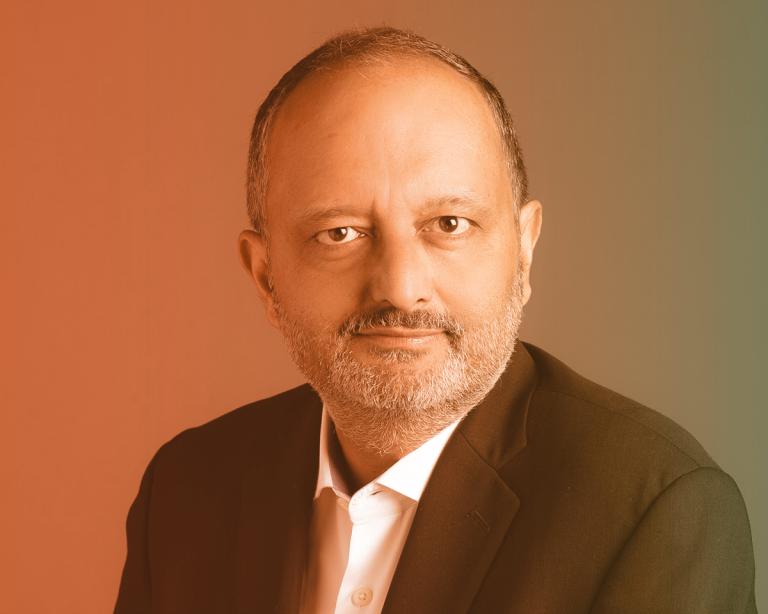
Research Interests: Programming languages and implementation and scientific computing
COMPUTER ARCHITECTURE
PROFESSOR OF INSTRUCTION
Dr. Siddhartha Chatterjee received a bachelor of technology in electronics and electrical communications engineering from the Indian Institute of Technology, Kharagpur. He then received his doctorate in computer science at Carnegie Mellon University, completing his thesis on compiling data-parallel programs for efficient execution on shared-memory multiprocessors.
Before relocating to Austin, Dr. Chatterjee lectured at the University of North Carolina at Chapel Hill for seven years. He then worked at IBM in Austin for over 13 years, leaving the company to work at Persistent Systems. A longstanding member in the tech world, Dr. Chatterjee also has eight patents, seven certifications, and over 70 publications to his name.
But, Dr. Chatterjee isn’t a newcomer to the Forty Acres —he’s worked as a faculty member at UT as well as a coach and mentor at STEM events at multiple public schools in Travis County.
Swarat Chaudhuri
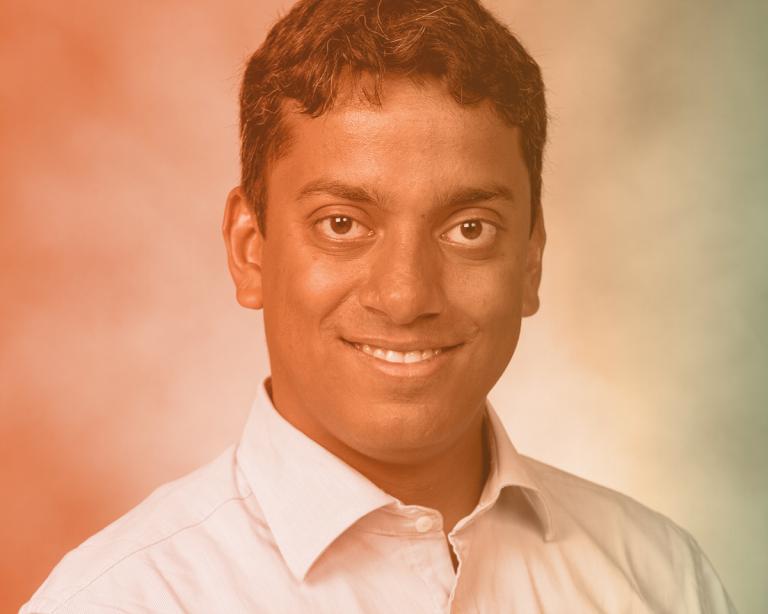
Research Interests: Safe autonomous systems, trustworthy machine learning, program synthesis, and automated reasoning
FORMAL METHODS, ARTIFICIAL INTELLIGENCE, PROGRAMMING LANGUAGES, & MACHINE LEARNING
ASSOCIATE PROFESSOR
Dr. Swarat Chaudhuri works in the intersection of formal methods and artificial intelligence (AI). His research vision is to build a new generation of AI systems that are designed from the ground up with the goals of reliability, transparency, and security. He seeks to realize this vision through a synthesis of ideas from programming languages, formal methods, and machine learning.
Dr. Chaudhuri received his bachelor of technology in computer science from the Indian Institute of Technology Kharagpur. He completed a doctorate in philosophy in computer science at the University of Pennsylvania in 2007. His doctoral dissertation explored mathematical logics and algorithms for the formal analysis of software.
Dr. Chaudhuri was previously a faculty member at Pennsylvania State University and Rice University, has taught a wide range of undergraduate and graduate courses on computer science, and has a long track record of federally funded research. His accolades include an NSF CAREER award, a Google Research Award, the ACM SIGPLAN John Reynolds Doctorate Dissertation Award, and distinguished paper awards at numerous ACM conferences.
Eunsol Choi
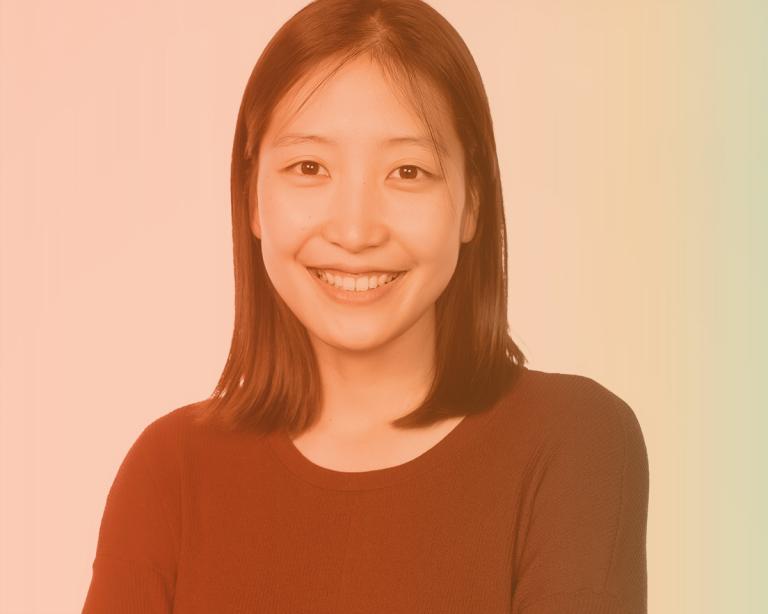
Research Interests: Reading comprehension, question answering, and entity understanding
NATURAL LANGUAGE PROCESSING
ASSISTANT PROFESSOR
Dr. Eunsol Choi studies natural language processing, machine learning, and computational social sciences, with a particular focus on extracting and querying information about entities from text.
She earned an undergraduate degree in mathematics from Cornell University in 2012, and has recently completed her PhD from the University of Washington.
In 2018, Dr. Choi was a recipient of the Facebook Research Fellowship.
Dr. Choi is devoted to sharing her knowledge with the next generation of leaders and frequently organizes and contributes to student research workshops. In addition, she has given talks at various academic institutions, including Heidelberg University, Ohio State University, Stanford University, and Seoul National University.
She currently works as a visiting research scientist at Google AI in New York City, and is applying her expertise to real-world applications while fostering industry collaboration.
Tina Peterson
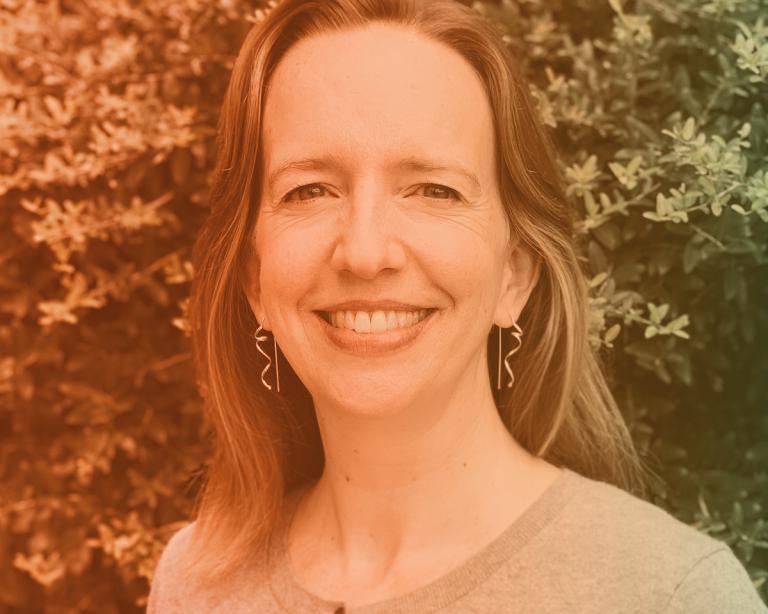
Research Interests: Media literacy, scientific literacy, and ethics in technology & engineering
SCIENTIFIC COMMUNICATION & COMPUTATIONAL ETHICS
ASSISTANT PROFESSOR OF PRACTICE
Dr. Tina Peterson began her undergraduate studies with a bachelor of science in journalism from the University of Colorado in 2000. After completing her graduate degree abroad at the University of Nottingham, she earned her doctorate in mass media and communication at Temple University. Her dissertation covered visual communication, food-media literacy, and self-efficacy.
Her research interests include media literacy, scientific literacy, and ethics in technology and engineering.
Before accepting an offer from UT, she lectured at Rice University on ethics in computer science and professional communication in engineering. She has more than a decade of teaching experience at public and private institutions.
Dr. Peterson is also the author of the novel, “Oscar and the Amazing Gravity Repellent” (Capstone 2015).
John Wright
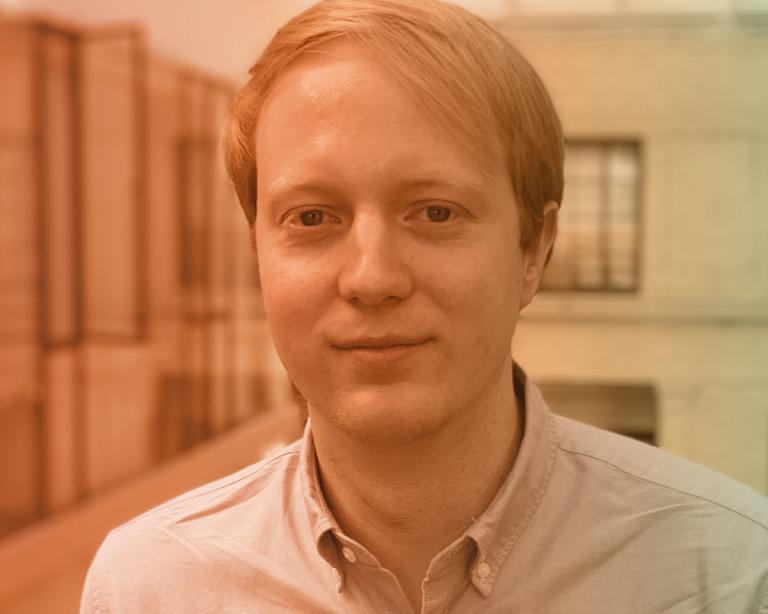
Research Interests: Quantum complexity theory, quantum algorithms, and quantum information theory
THEORETICAL COMPUTER SCIENCE
ASSISTANT PROFESSOR
Quantum computing researcher Dr. John Wright will join the Texas Computer Science faculty after completing his postdoctoral studies at the California Institute of Technology in fall 2020.
A longhorn himself, Dr. Wright is returning to the Forty Acres this time as an assistant professor. After receiving his undergraduate degree from Texas Computer Science, Dr. Wright went on to complete his doctorate studies at Carnegie Mellon University.
In addition to quantum computing, Dr. Wright’s research focuses on the hardness of approximation and the analysis of Boolean functions. His findings have gained popularity in the world of quantum computing. Along with another researcher in the same field, the postdoctoral student found the first proof that entanglement increases rather than decreases the power of multi-prover protocols. Dr. Wright’s past research also pinned down the sample complexity of quantum state tomography.
Yuke Zhu
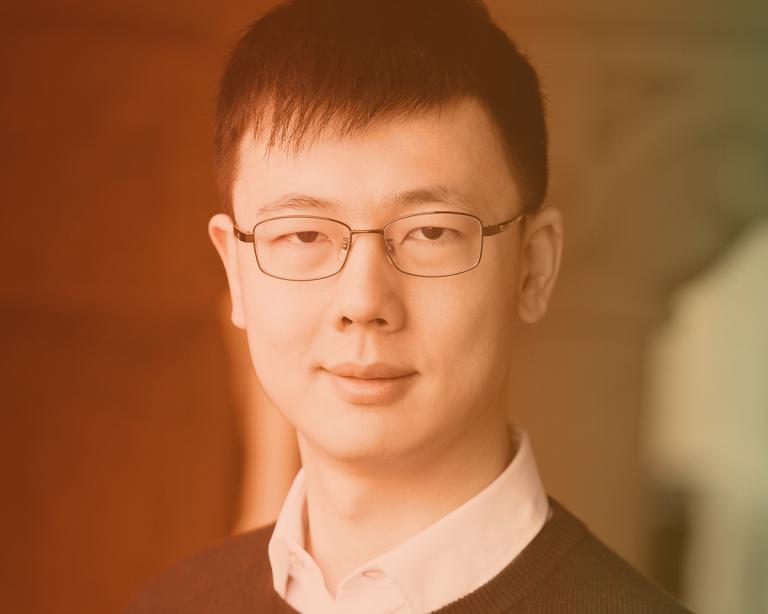
Research Interests: Robot learning, Interactive perception, robot manipulation
ROBOTICS
ASSISTANT PROFESSOR
Dr. Yuke Zhu is a leading mind in robot vision and learning.
Dr. Zhu received his master’s and PhD from Stanford University. His doctoral thesis centers around closing the perception-action loop to make robot intelligence more generalized and applicable to less-controlled environments. As an undergraduate, he received dual degrees from Zhejiang University and Simon Fraser University.
Dr. Zhu’s research lies at the intersection of robotics, machine learning, and computer vision. He develops computational methods of perception and control that give rise to intelligent robot behaviors. Through his work, Dr. Zhu aspires to teach robots to understand and interact with the surrounding visual world.
Dr. Zhu’s publications have won several awards and nominations, including the Best Conference Paper Award at ICRA 2019. His work has been covered by media outlets, such as MIT Technology Review and Stanford News. In addition, he’s had research collaborations with Snap Research, Allen Institute for Artificial Intelligence, and DeepMind Technologies.
TRAINING TOMORROW'S
LEADERS TODAY
TEXAS HONORS COMPUTER SCIENCE & BUSINESS
The tides are changing: over the past ten years there has been a fundamental shift in business. In Fortune 500’s list of fastest-growing companies, more than a quarter are in the technology sector. Companies are realizing that understanding topics such as data science, machine learning, and the broader issues of information technology are integral to succeeding in the marketplace. CEOs are just as likely to come from a computer science background as they are from business.
Texas Computer Science is duty-bound to educate future business leaders and prepare them to thrive in this new environment. To answer that call, we have launched the Texas Honors Computer Science and Business program (Texas CSB).
Texas CSB is the partnership between two top-ranked programs, Texas Computer Science and McCombs School of Business. The program’s goal is to ensure that graduates are uniquely prepared with the technical skills and business acumen to pursue careers in a variety of areas—including marketing analytics, computational finance, and leadership roles at tech companies—or jump-start their own business. Graduates from this program will be the most pursued among virtually any graduates at the university.
Tomorrow’s leaders are being trained today in Texas CSB.
Breaking Barriers

TEXAS MASTER OF COMPUTER SCIENCE ONLINE
There’s no doubt that a computer science education is highly desirable and can open up incredible career opportunities. But people live busy lives, and the demand for top-tier degree programs that are affordable and flexible has never been higher. Texas Computer Science is solving this problem by launching its Master of Computer Science Online program. It’s an exciting time to study computer science—and The University of Texas is helping more students get in on the action.
In today’s technology-driven world, there’s a demand for computer scientists that far outpaces the current supply of talent on the job market. The solution seems obvious, right? Universities should expand computer science programs and admit more students. But on-campus programs simply do not have the capacity to educate enough students to meet the demand for computer science graduates.
Furthermore, for many talented people — people who could truly excel in both academic and professional environments — higher education is inaccessible due to factors such as cost, location, and family obligations.
Educational institutions have an obligation to find better ways of making higher education available to more people. As one of the most respected academic communities in the world, Texas Computer Science is uniquely qualified to answer this call. That’s why we’re proud to announce the inaugural year of the Master of Computer Science Online program.
The move to an online environment makes Texas Computer Science’s renowned faculty and resources accessible to thousands of students who otherwise would not be able to pursue a master’s degree. As we expand into the online education frontier, we are also able to develop new pedagogical tools that push us to become better educators.
Computer scientists are indispensable in a number of industries, and a world-class computer science education from The University of Texas opens up graduates to opportunities in fields such as healthcare, transportation and business.
As the world changes to enhance technology, the stewards of computer science education have to find new methods of teaching the next generation of innovators. Texas Computer Science is dedicated to leading the charge in ensuring that a quality computer science education is accessible to talented students.
FASTEST ACADEMIC SUPERCOMPUTER IN THE WORLD
FRONTERA WILL POWER DISCOVERIES BY THE NATION’S TOP COMPUTATIONAL SCIENTISTS

Imagine a human performing one calculation per second for a billion years. What if a machine could perform the same number of calculations in a single second? The implications are staggering—such a machine would change the game for computational research, broadening the scope of scientific inquiry in fields ranging from machine learning to genomics to high-energy physics.
UT Austin now has the power to do exactly that. UT’s Texas Advanced Computing Center (TACC) recently became home to Frontera, the fastest university supercomputer in the world. Frontera is paving the way for the next generation of discoveries and reinforcing UT’s reputation as an academic powerhouse by facilitating increasingly sophisticated research.
Academic researchers have never had a tool this powerful to solve the problems that matter to them, said Dan Stanzione, TACC executive director. Frontera will be an important tool to solve grand challenges that will improve our nation’s health, well-being, competitiveness, and security.
Frontera has the capacity to solve the most pressing computational problems facing academia today and employs simulation, data analysis, and artificial intelligence at a scale not previously possible, allowing for breakthroughs in fields such as gene-editing, computational neuroscience, and drug design.
In the coming years, Frontera will continue to support hundreds of projects, using its unparalleled computational ability to enable breakthrough discoveries in nearly every field.



